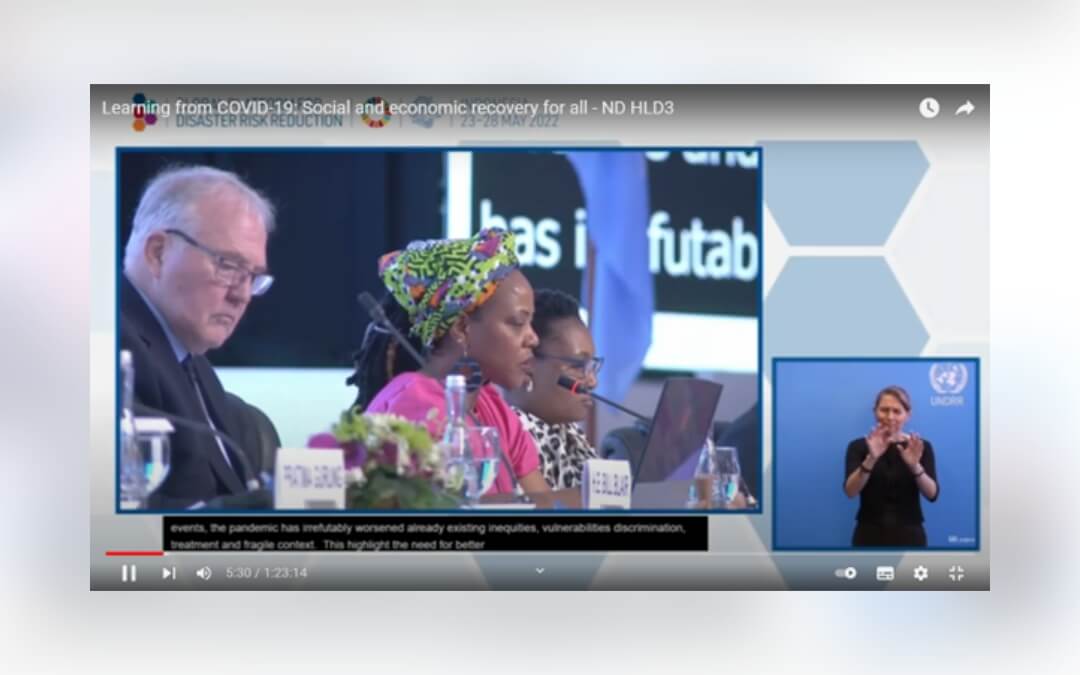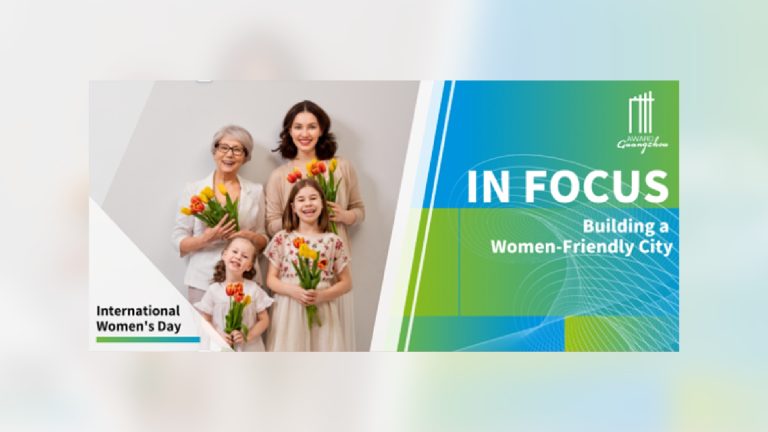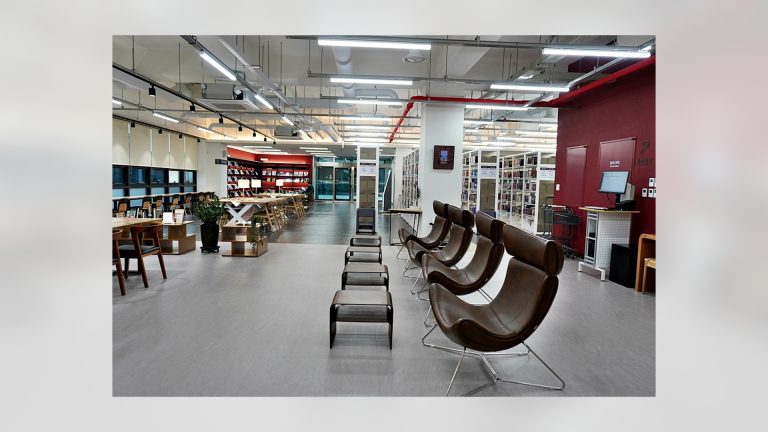The COVID-19 pandemic has highlighted the cascading nature of risk with more than 500 million confirmed cases and over 6 million confirmed deaths over the course of 2 years. The COVID-19 pandemic has also exposed the vulnerability and inequity in our society and our associated system, such as how health services system has irrefutably worsened. It shows clearly the importance of coordination among health and other sectors for effective and gender responsive disaster risk reduction and systemic risk governance; a useful lessons learned worthy of replication worldwide
Therefore, this session highlights how evidence-based and just recovery can help us prepare for future disasters as well as protect and sustain the sustainable development goals (SDGs). This session was moderated by Ms. Valerie Nkamgang Bemo (Deputy Director, Bill and Melinda Gates Foundation, Emergency Response). The panelists of this session were:
- Dr Mike Ryan (Executive Director, WMO Health Emergencies Program)
- Ms. Pratima Gurung (President, National Indigenous Disabled Women Association Nepal (NIDWAN), Climate Change)
- Mr. H.E. Bill Blair (President of the Queen’s Privy Council of Canada, Minister of Emergency and Preparedness)
- Ms. Thembisile Simelane-Nkadimeng (Deputy Minister of Cooperative Governance and Traditional Affairs ( Speaker), South Africa)
Jagan Chapagain (Secretary General, International Federation of Red Cross and Red Crescent Societies (IFRC))
Following are the key take-aways from this session:
Preparedness of the Risk Reduction
The first task is understanding the basics of Risk Reduction. Mr.H.E. Bill Blair mentioned that, “among the very first things to acknowledge that we were not well prepared for the pandemic with other health related events for this pandemic.” As a result, there is a need for better collaboration.
We also need to know that not all climate plans suits all. Taking into account the different contexts and characteristics of each country, multi-stakeholder engagement, and taking into account various local, cultural, social, environmental and economic realities and knowledge (also traditional knowledge) of different countries.
This time, we can not only focus on the pandemic, but also should focus the multi-faceted impacts, for example: mental health issues caused by the grief of losing family members and close friends who have died due to COVID-19.
This systemic problem requires a systemic solution. Panelists during this session emphasised the importance of learning about the entire experience COVID-19 and its impacts that arenot only focused on the recent months. We need to focus on the underlying causes not only on the symptoms, which is the real solution.
Risk Reduction Investment
Another important message was how investment is good for business practices, however, how the investment is being implemented is the key. Investment can be done in various types, namely: 1) Throughfunding initiatives. 2). Investment in research and development by bringing together opinions and knowledge of academics and experts for better preparedness.
Inequity – No One Left Behind
This principle of the Sustainable Development Goals was alse highlighted during the session. “We still see many people left behind”, Ms. Pratima Gurun said. Mr Jagan Chapagain then mentioned the examples of inequity that he saw during his work at the IFRC such as: 1) Inequity among nations: COVID-19 cases. 2) Inequity lessons: availability actions 3) Inequality development: healthcare, and so forth. We need to takeinequity issues very seriously, so that all levels of society are equally helped and protected. Furthermore, there is a need for strong international and domestic laws that help put foundation to address issues that are absolutely important.
The Contribution of Community and Strategic Role of Citizen Participation
Communities and citizens’ contribution is needed in action plans asthey are notpassive, but are active recipients that can very much play a fundamental role in the success and sustainability of COVID_19 recovery efforts and action plans. “They are the whole society collaborations must be institutionalised with all stakeholders engaged and respected for their roles and contribution”, Dr. Mike Ryan said. Besides that, we also need to listen to them. If we do this, they will give us some respect and listen to our differences in thoughts and opinions. In addition to that, we also need to educate the public and involve them the process of decision-making in the right way asthey are in fact the centre of action plans.
Collaboration and Partnership: Key Successes
The most important lesson brought by the COVID-19 pandemic is the need to work together hand in hand. Partnership and collaboration are helpful to create integrated approaches, also we are able to create unified responses and ensure the management is better managed. With the collaboration and partnership, we will have many opportunities to move our global disaster risk reduction and prevention efforts towards a more influential and sustainable direction
Therefore, it can be concluded how crisis and COVID – 19 should be a way for everyone to building back better, moveforward and change the way we think about it. COVID-19 is an opportunity to build forward better,stronger, and safer. Let’s move away from build back, to forward better in a new paradigm. We are looking forward, not the past!
By KM Team











